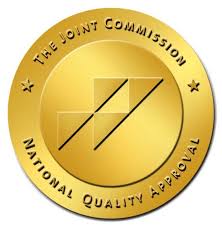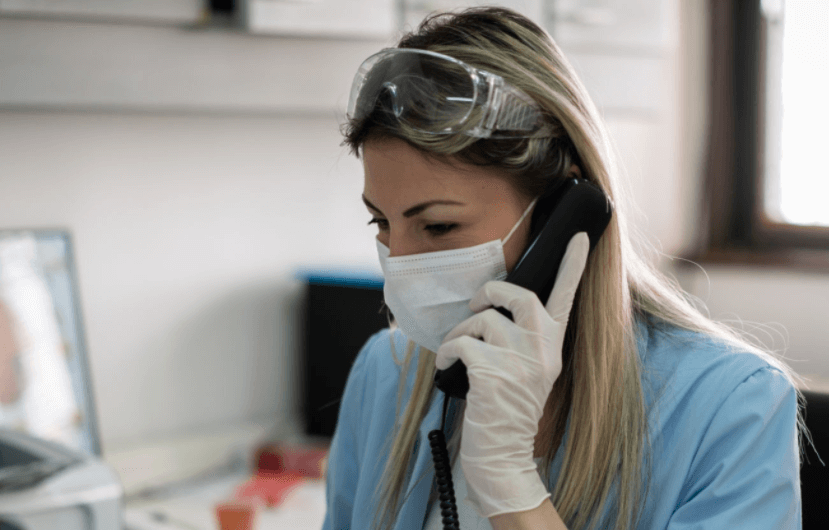Sepsis

What is sepsis?
Sepsis is the body’s extreme, life threatening response to an infection. It is a considered a medical emergency. If not treated quickly, it can lead to organ damage or failure and death.
Do you have questions about sepsis or sepsis care?
Missy Calloway, Director of Quality and Patient Safety (OHMCH)
- Phone: 270-338-8448
- Fax: 270-338-8581
Julie Simms, BSN, RN, Clinical Program Specialist (OHMCH)
- Phone: 270-338-8554
- Fax: 270-338-8452
What causes sepsis?
Sepsis is caused by an infection of bacteria, viruses, fungi, or parasites that is not treated in a timely manner. Sometimes, patients will have sepsis and the doctors are not able to determine the exact infection.
Is sepsis contagious?
No. Sepsis is not contagious. However, the underlying infection that lead to sepsis may be contagious.
What are some signs and symptoms of sepsis?
- High or low temperature (above 100.4 or below 96.8)
- Confusion
- Extreme pain
- Shortness of breath
- Clammy or sweaty skin
- High heart rate
- Low blood pressure
- Breathing fast or abnormally
- Chills
- Low urine output
- Extreme pain
TIME
When it comes to sepsis, remember “it’s about TIME.” Watch for:
T: TEMPERATURE - higher or lower than normal
I: INFECTION – may have signs or symptoms of infection
M: MENTAL DECLINE - confused, sleepy, difficult to rouse
E: EXTREMELY ILL – severe pain, discomfort, shortness of breath
What should I do if I think that I or someone I love has developed sepsis?
Seek medical attention immediately and say “I suspect sepsis”.
Who is at risk for sepsis?
- Older adults (>65 years)
- Young children (<1 year)
- People who have other medical problems such as diabetes, high blood pressure, lung disease, cancer, etc.
- People who have weakened immune systems, such as those on chemotherapy
- Those who have recently been treated for an infection such as pneumonia or a urinary tract infection
- Someone who recently had surgery
- Those who have open wounds
- Anyone who has had sepsis in the past
- Women that have recently had a baby (vaginal or c-section)
- Patients with known kidney stones
What can I do to prevent sepsis?
- Perform proper hand hygiene
- Get all vaccines recommended by your physician (EX: flu and pneumonia)
- If you have an open wound, be sure to keep it clean, dry and covered based on your doctor’s instructions
- Take antibiotics if prescribed by your doctor and make sure that you finish all of them, even if you are feeling better
- Always keep your follow-up appointments
Can COVID-19 lead to sepsis?
Yes. COVID-19 is a virus, which can lead to the complication of sepsis. If not caught and treated early, it can lead to septic shock and/or death.
Is sepsis a serious condition?
Yes! Sepsis is a medical emergency. It is the leading cause of death in hospitals. One out of every three hospital deaths is related to sepsis.
What is the treatment for sepsis?
The treatment for sepsis depends on the type of infection that lead to sepsis and the severity. The most common treatments include antibiotics and/or antiviral medications, IV fluids, and medications to help keep blood pressure stable
What is post sepsis syndrome?
Post sepsis syndrome is a condition that some sepsis survivors live with for months to years after being treated for sepsis. Some symptoms include:
- Difficulty concentrating
- Decline in mental function
- Fatigue
- Joint and muscle pain
- PTSD (post-traumatic stress disorder)
- Nightmares
- Panic attacks
Is sepsis an infection of the blood?
No, this is a common misunderstanding. While bacteremia (bacteria in the bloodstream) can lead to sepsis, it is not sepsis. Sepsis is the body’s overwhelming reaction to an infection.
Once I leave the hospital, am I at a high risk for going back or having to be readmitted?
Yes, patients that were treated for sepsis are at a higher risk for readmission. BUT, there are things that you can do to decrease this risk. Management techniques include:
- Following up with your physician within seven days of discharge from the hospital
- Getting all medications that were prescribed to you
- Being compliant with treatment plan
- Performing wound care as directed by physician
- Seek medical treatment early with any new or worsening signs and symptoms of infection or sepsis
What should I do if I cannot afford my medication?
If you cannot afford the medications that have been prescribed to you, there are a couple of options for you including:
- Ask the pharmacist for any manufacturer coupons.
- Call your physician to ask if there is another option that would be covered by your insurance.
- Try to enroll for assistance program through the drug company.
- Call the case management department at 270-417-5989 for further assistance. (There are specific guidelines in place must be followed.)
It is important that you always get the medications that are prescribed to you, if you are unable to obtain them, be sure to inform your physician.
What are some things that I can do as a caregiver to help my loved one with sepsis?
- Ask your loved one how you can help them the most
- Learn about sepsis and the effects that it has on every aspect of daily life
- Make sure they go to all doctor’s appointment
- Help them manage their medications if they cannot do it on their own
- Encourage them to exercise, as much as they can
- Be there to support them and encourage them
- Educate yourself on the signs of when they need to go to the hospital
- Advocate and ask questions to all healthcare professionals on their behalf
I am a caregiver to someone that has had sepsis, is there any information to help me?
Is Owensboro Health qualified to provide excellent care to sepsis patients?
Yes! We are proud to say that both Owensboro Health Regional Hospital and Owensboro Health Muhlenberg Community Hospital have earned a sepsis certification through The Joint Commission.
